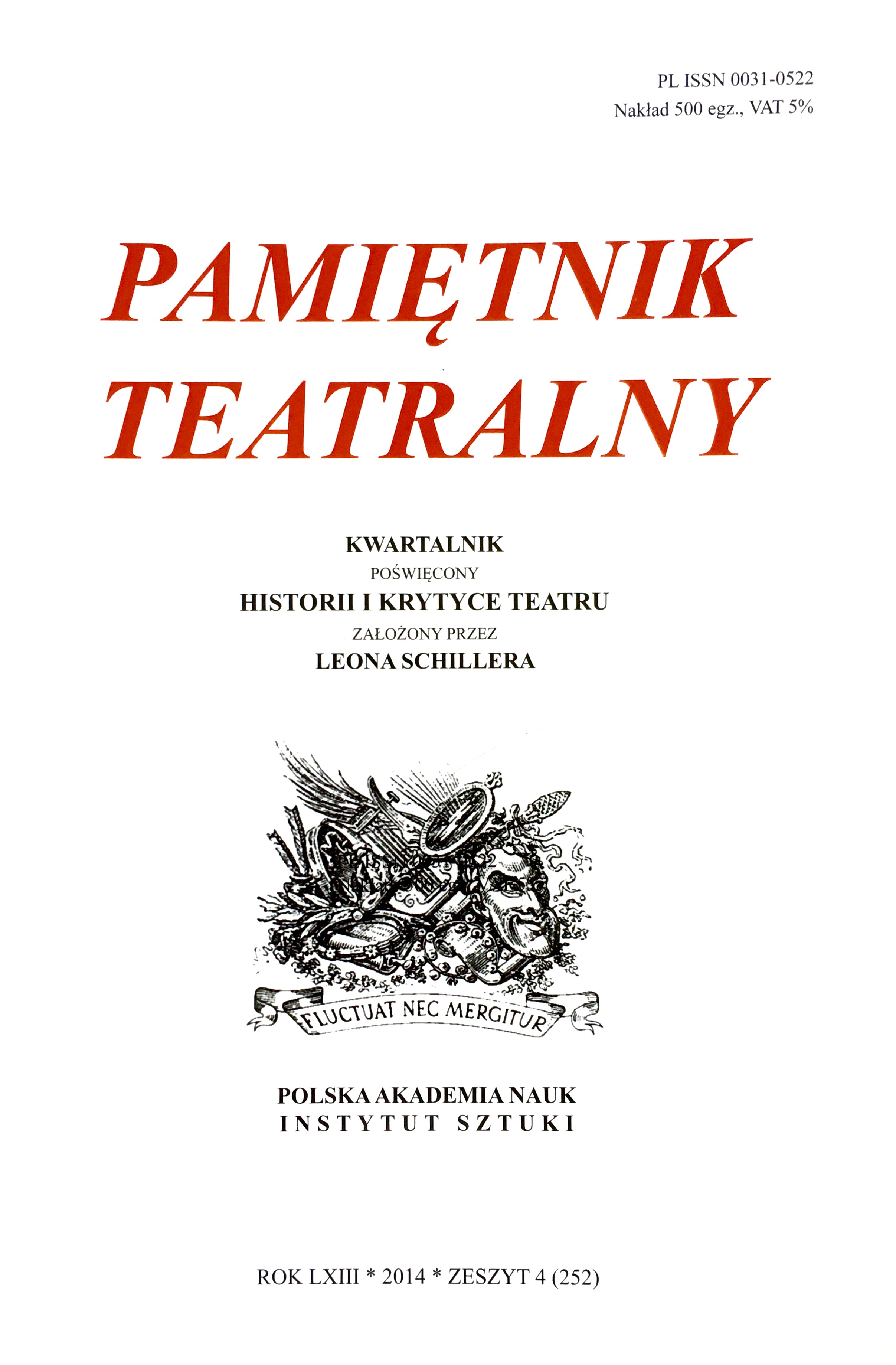Kłopoty Molière’a w XVIII wieku
Molière’s Troubles in the 18th Century
Author(s): Marek DębowskiSubject(s): Theatre, Dance, Performing Arts
Published by: Instytut Sztuki Polskiej Akademii Nauk
Keywords: Moliere;Enlightment;18th-century theatre;
Summary/Abstract: The eighteenth century, postulating the bourgeoisie rebel against the privileges of the king and aristocracy, opposing the Church and religion, rejecting classicism, court art and bienséances (decorum), should have – or so it seems – reserved a place of prominence for Molière, who had criticised them all in his plays. Yet it was not so. Molière was played in the 18th century, to be sure, but much less than, for example, Voltaire, whose dramatic work is now obsolete. The censorship of the period regarded Molière with high suspicion. Marivaux did not like Molière; Rousseau condemned his works. Voltaire and Diderot wrote about him ambiguously. The most paradoxical was the position of the revolutionaries who admired Molière theoretically but did not put on his plays. One may, therefore, ask why those committed to the Enlightenment turned away from Molière. The number of factors that side-lined Molière’s comedies in theatre life is so great that it is difficult to name them all. Presentation of several fields of research that deal with the changes within the social, religious, and economic consciousness that were underway at the turn of the 17th and 18th centuries, factors affecting the way in which theatre licenses were granted in Paris in the Regency period and under the reign of Louis XV and Louis XVI, as well as the evolution of dramatic genres and performing arts bring us closer to providing such an answer, even though it obviously does not explain the issue fully.
Journal: Pamiętnik Teatralny
- Issue Year: 252/2014
- Issue No: 4
- Page Range: 143-166
- Page Count: 24
- Language: Polish

